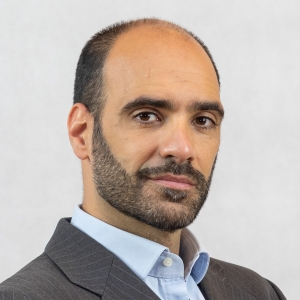Some facts: Keira Bel is a young British girl who from early childhood had a hard time living her sexual identity. She preferred to dress and play like a boy. Her pre-adolescence was traumatic and her puberty brought her to depression. When she was fourteen, she started watching “videos on Youtube” and “doing research on the internet” and on that basis declared “I thought I finally found the answer to why I felt so masculine […]” (quotes taken from the judgement).
At fifteen, she took the plunge and decided to embark on a long and painful transition to become a man. She visits the UK referral clinic at the Gender Identity Development Service of the Tavistock and Portman Foundation Trust. At sixteen, after three appointments, the clinic prescribed him puberty blockers and at seventeen, crossed sex hormones. When she was twenty she had underwent a mastectomy and despite this long journey,
At 23, she bitterly regrets her transition and files a complaint against the clinic. And she wins her case, the judges concluding that teenagers under the age of sixteen are not fit to make such a decision and that from this age, sexual transition requires the prior authorization of a judge.
Reading the judgment is puzzling. The facts are of rare gravity: a clinic prescribing one of the most intrusive treatments ever to a teenage girl in despair and fooled by the information she picked on social platforms. Despite her emotional distress and patent immaturity, adults and professionals contented themselves with informing her about the extent of a treatment despite "limited scientific evidence for the long-term benefits versus the potential hams of the intervention". These adults explained to a sixteen-year-old girl she may not be able to have children, some effects are irreversible and the path of transition would be extremely laborious. It's up to you, it's your right, it's your choice they told her when she actually expected them to tell her to wait a few years, think twice and become an adult like them, before she takes the most defining decision in her life. But they did just the opposite.
This case is not an anecdote, on the contrary, they are growing exponentially. According to Tavistock’s own figures, referrals soared from 77 in 2009 to 2590 in 2018 in less than ten years, thus increasing by more than 3000%! Staggering figures that match those of the Swedish Board of Health and Welfare which reports a 1500% increase of of gender dysphoria diagnoses among young teenage girls in the same period.
Several lessons can and should be learned from the Keira Bell case. The first is precisely the toxic role of fora, networks and other online platforms that promote superficial, biased and militant views on such a delicate and complex issue. Immature teenagers, often in psychological distress, are brainwashed and manipulated at the shade of internet’s echo chamber. Worse, they are push down a path that is not theirs despite the irreversible consequences it implies. How to explain the staggering increases of 3000% without the multiplying effect of the net and the constant ideological propaganda teens are bombed with? The own Keira Bell pointed out the deceitful and misleading vision of the transition that teens find on the internet.
Amnesty International, for example, expressed its disappointment and concern at the judgment “particularly on consent and bodily autonomy”. How to support these maximalist positions despite the growing number of young transsexuals regretting their transition or detransitioning? Why ignoring the many experts and especially adult transsexuals who warn about the gravity of such a decision and insist on the inability of minors to take it knowingly? Why is the most basic prudence conspicuous by its absence when speaking about the physical integrity of adolescents and their best interest?
Here is perhaps the most disturbing aspect of Keira Bell’s case: the recurring impression that ideology takes precedence over scientific analysis, belief over fact, and intimidation over debate, even scientific debate. Whatever the price minors will pay for it. How many professionals silence their opinion for fear of being accused of "transphobic"?
The question is not so abstract when you consider that 35 psychologists at the Tavistock clinic resigned over the past three years.
At least the latter have demonstrated two of the qualities that teens look for when they turn to an adult: courage and discernment. Courage to resist an ideology promoted with unprecedented virulence, intimidation and blackmail. Discernment to resist the confused zeitgeist of our times and remind the obvious: teenager are not adults, some decisions require an informed choice that sometimes the best answer is a rational "no" rather than an ideological "yes". Discernment also to make the facts prevail and not be enslaved by certain ideas of the trans movement which are scientifically as well founded as the flatness of the Earth. Ideas which, however, are accepted as dogmas by too many decision-makers, in Europe and elsewhere and sometimes are enshrined in the law. As the Biden administration considers banning the terms "father" and "mother" from official language to be more “trans-inclusive”, the Keira case reminds us that one day this cowardice and confusion will be harshly judged. Also by History.
The author is an expert of international law and Leader of MCC Center for European Affairs.
Cover: Sam Tobin/PA










